Workshop in Musical Composition for Cinema
With the support of Sacem, the MCM organizes a Master Class of Musical composition for Cinema every year. Directed by experienced and talented composers, this Master Class allow up to ten young composers and musicians to benefit from a 10-day intensive workshop to revisit the original music of several short films or films extracts. The aim is to work toward a finished work for MCM’s closing ceremony, and perform a public representation of this movie-concert, interpreted by the students.
Pablo Pico
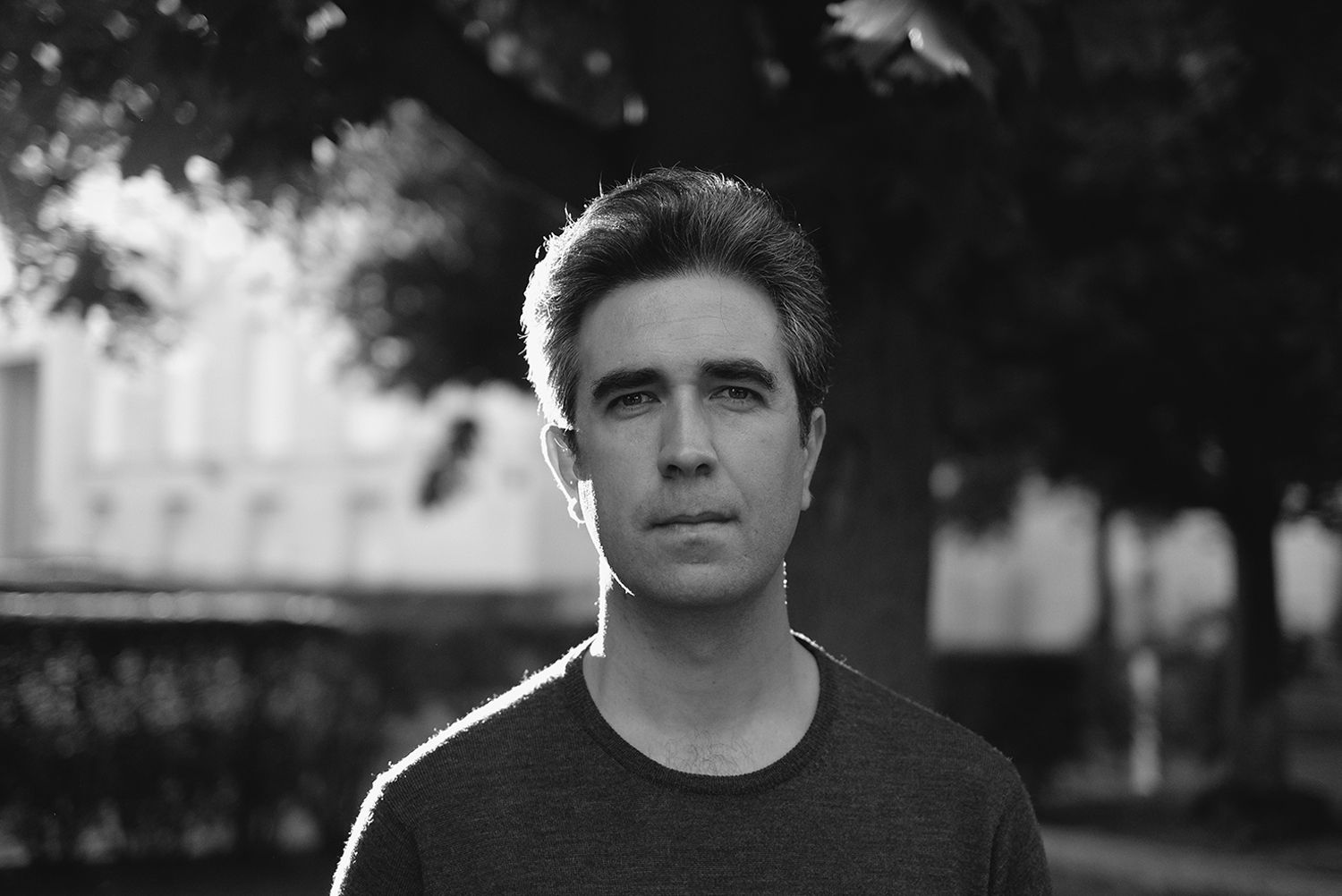
A musician combining acoustic and electronic productions, Pablo Pico is today one of the most active composers in film music. With a passion for cinema and TV series, and a wide range of influences following a classical and self-taught musical path, his music is defined by a singularity of tone and writing, but also a continuous renewal and an acute sense of storytelling.
His creative range extends from fiction to documentaries, including animated films, for which he is now recognized for the quality of his soundtracks. Pablo Pico signed the original score of the feature films Sirocco and Le royaume des courants d'air, which won the Public Prize at Festival d’Annecy and Best Score Award at Festival International d’Animation de Bucheon (Corée du Sud).
Workshop
-
2024
Master class in musical composition for the image of the 25th Music & Cinema - Marseille International Film Festival - from April 1st to 6, 2024
As part of the Marseille International Music & Cinema Festival (MCM), which will take place from April 1 to 6, 2024, we are organizing, under the aegis of SACEM, a Master Class in musical composition for the image. It will be directed by a renowned composer. The Master Class will take place from March 27 to April 6, 2043.Designed as professional training in musical composition for the image, it will consist of composition exercises on short films or a feature film and will lead to the creation of a film concert. The completed work will be presented to an audience on Saturday April 6, 2024 on the occasion of the closing evening of the Festival International Music & Cinema Marseille (MCM). This film concert will bring together the broadcast of the film(s) as well as the “live” musical interpretation by the young composers-performers selected.
For this 25th edition of the Marseille International Music & Cinema Festival, we will have the pleasure of welcoming the composer Pablo Pico who will lead the Master Class in Musical Composition for the Image.
“It is an honor and a joy for me to supervise the Master Class of this 25th edition of the MCM festival. I see these 10 days of creation as a moment of exchange and sharing around a program of animated films of different genres and aesthetics. I hope to transmit to young composers a taste for adventure and a certain idea of musical creation in cinema and I imagine the closing film concert as a great musical and cinematographic celebration. »
The participating composers:
- The participating composers:
- Antonin Browne
- Adele Chavy
- Alexandre Haudiquet
- Damien Lacore
- Lucas Beaugas
- Edouard Morcellet
- Ian Rictor
- Mauve Robichez
- Ralph Smith
-
2023
Master class in musical composition for film at the 24th Music & Cinema - International Film Festival in Marseille - from March 22 to April 1, 2023
As part of the Music & Cinema Marseille International Festival (MCM), which will take place from March 27 to April 1, 2023, we are organizing, under the auspices of SACEM, a Master Class in musical composition for film. It will be led by a renowned composer. The Master Class will take place from March 22 to April 1, 2023.
Designed as a professional training in musical composition for film, it will consist of composition exercises on short films or a feature film and will result in the creation of a cine-concert. The completed work will be presented to the public on Saturday, April 1, 2023, during the closing night of the Music & Cinema Marseille International Festival (MCM). This cine-concert will bring together the screening of the film(s) as well as the live musical performance by the selected young composer-performers.
For this 24th edition of the Music & Cinema Marseille International Festival, we are pleased to welcome composer Rémi Boubal, who will lead the Master Class in Musical Composition for film.
A pianist and passionate about cinema, Rémi Boubal turned towards film music in 2008 and participated in this same Master Class then led by Cyrille Aufort. In 2012, he composed the soundtrack for the feature film Les enfants de Troumaron by Harrikrisna and Sharvan Anenden and co-composed the soundtracks for the Canal+ series Platane and Lascars the series with Lucien Papalu.
Subsequently, he composed music for the Comcast media group and for feature films such as Simon Leclère's Les révoltés and Margarita Cadenas's Femmes du chaos vénézuélien. The following year, he scored Erick Zonca's film, Fleuve noir.
Since then, Rémi has collaborated with filmmakers in fiction such as Chie Hayakawa (Plan 75 - Special Mention Caméra d'Or Cannes 2022), Sharvan Anenden (The comeback, Draupadi), César Diaz (Nuestras Madres - Caméra d'Or 2019), Camille Lugan (La Persistente, Pas le temps)... and in documentaries with Flore Vasseur (Bigger than Us, Meeting Snowden), and Emilie Thérond (Teach me if you can).
The participating composers:
- Ralph Arabat
- Emil Sana
- Emma Kélalèche
- Tatyana Richaud
- Vanille Paitier Debray
- Ekiem Barbier
- Baptiste Charpentier
- Léonard Vanderhaegen
- Olivia Alcaraz-Bernabo
- Titouan Gramain
-
2022
Master class de composition musicale pour l'image du 23e Music & Cinema - Festival International du Film à Marseille - du 30 mars au 9 avril 2022
With the support of Sacem, the MCM organizes a Master Class of musical composition for picture. For its 23rd edition, the workshop will be led by the composer Marie-Jeanne Séréro, will include 9 young composers/musicians and will take place from March 30th to April 9th 2022. The aim is to work toward a finished work for April 9th, MCM’s closing ceremony, and perform a public representation of this movie-concert, interpreted by the students.
MARIE-JEANNE SÉRÉRO
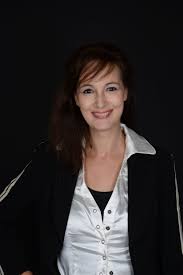 At a young age, Marie-Jeanne Séréro started attending the Higher National Conservatory of Music of Paris (Conservatoire National Supérieur de Musique de Paris) where she was awarded numerous first Prizes in the specialized music theory class as well as in harmony, counterpoint, orchestration, piano accompaniment and song directing.
At a young age, Marie-Jeanne Séréro started attending the Higher National Conservatory of Music of Paris (Conservatoire National Supérieur de Musique de Paris) where she was awarded numerous first Prizes in the specialized music theory class as well as in harmony, counterpoint, orchestration, piano accompaniment and song directing.At the same time, she lives her two passions : voice and orchestral writing (with film-scoring, composition and arrangements, contemporary creations, opera and choreographic compositions.)
At the Higher National Conservatory of Music of Paris, she began teaching a song director class before getting into orchestration teaching and also supervising the music to image class.
For numerous years, she has performed concerts all over Europe (in duos with Rostropovitch, P. Fontanarosa, Dider Lockwood, O. Charlier, R. Pasquier, Christiane Eda-Pierre, the Ludwig Quatuor)
Marie-Jeanne Séréro composes, orchestrates and leads prestigious musical projects for the cinema, the theater and event shows, or the realization of various albums.
These last few years, she has performed concerts all over Europe (in duos with Rostropovitch, P. Fontanarosa, Dider Lockwood, O. Charlier, R. Pasquier, Christiane Eda-Pierre, the Ludwig Quatuor).
For the cinema, she notably wrote the score for Guillaume et les Garçons, à Table by Guillaume Gallienne, Anton Tchékoc 1890 by René Féret, and Banlieusards by Kery James and Leïla Sy…
Marie-Jeanne Séréro was awarded the SACD Music Prize in June 2016 as well as the SACEM France Music Prize for film music in November 2016.
The participating composers:
- Théodore Vibert - Violoncelle
- Quentin Lupinko - Guitare
- Jean-Victor Suzanne - Clarinette, piano
- Emma Lutringer-Gully - Guitare, piano, violon
- Clément Musy - Piano, clarinette, saxophone
- Clémentin Bonjour - Alto, piano
- Diego Ayala Raffalli - Guitare
- Marine Bonnetain - Violon, alto
- Görkem Agar - Piano, clavier
-
2021
Master class de composition musicale pour l'image du 22e Festival International du Film d'Aubagne - Music & Cinema du 10 au 20 mars 2021
La Master class de composition musicale 2021, organisée sous l'égide de la Sacem, a été dirigée par la compositrice Florencia Di Concilio. Elle s'est adressée à huit jeunes compositeurs/interprètes et s'est tenue du 10 au 20 mars 2021. L'objectif étant de fournir un travail achevé le 05 juin à l'occasion de la soirée de clôture du Festival Music & Cinema et d'offrir une représentation publique sous forme de ciné-concert, interprétée par les participants.
FLORENCIA DI CONCILIO
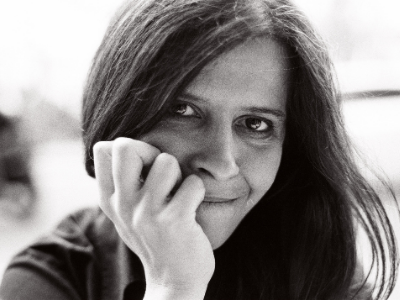
Saluée par la presse internationale, Florencia Di Concilio est une des artistes les plus prolifiques et versatiles de la nouvelle génération de compositeurs de musique que ce soit classique, de film, ou encore électronique.
Née à Montevideo, dans une famille de musiciens et bercée tantôt par le piano de son père, musicien de jazz, tango, et musique afro-uruguayenne, comme par les innombrables disques de musique italienne et opéra qui tapissent les murs de la maison familiale, Florencia quitte l’Uruguay pour étudier le piano classique, la composition, et l'orchestration au New England Conservatory à Boston, USA, prestigieuse institution académique où se côtoient le jazz et la musique classique.Installée à Paris, Florencia Di Concilio a composé la musique originale d’une quarantaine de films pour le cinéma et la télévision. Elle a signé la musique originale de Push de Fredrik Gertten, prix du publique au CPH:DOX 2019 et nommé aux European Film Awards, Buddy de Heddy Honigmann, Ma Nudité Ne Sert à Rien et Savoir Compter de Marina De Van, avec Anna Mouglalis, Primas de Laura Bari, Prix du Publique au Festival International de Mar del Plata 2018, Ava de Léa Mysius, Prix SACD de la Semaine de la Critique du Festival de Cannes 2017, Becoming Zlatan, sélectionné aux European Film Awards , Angry Inuk , Prix Spécial du Public au festival Hot Docs, ou encore de Dark Blood, film posthume de River Phoenix, terminé en 2013 et primé en Sélection Officielle du Festival International du Film de Berlin. Sa partition originale pour Bulles d’Air de Daouda Diakhaté lui a valu le Grand Prix de la Meilleure Musique Originale au Festival International du Film d’Aubagne - Music & Cinema 2019.
Elle a récemment signée la musique originale de Calamity: une enfance de Martha Jane Cannary, de Rémi Chayé, grand gagnant du dernier Festival d'Annecy, pour laquelle elle est nommée aux Prix Lumières 2021, et remporte le prix de la meilleure musique au Festival de Bucheon en Corée du Sud. Florencia Di Concilio vient aussi de signer la partition du long métrage Just Kids de Christophe Blanc, avec Kacey Mottet-Klein, de la série originale Netflix US Trial 4, et de Influence de Richard Poplak et D. Nielle, primé lors du dernier festival de Sundance.Florencia Di Concilio compose en ce moment la musique des nouveaux films de Heddy Honigmann, Tanaz Eshaghian et Daouda Diakhaté, et prépare sa nouvelle collaboration avec Léa Mysius pour son nouveau film Les Cinq Diables, avec Adèle Exarchopoulos.
Le premier concerto pour piano et orchestre de Florencia Di Concilio, commandité par l’ Orchestre Philharmonique de Montevideo et primé aux USA, a été salué par la critique qui décrit sa première comme « une soirée mémorable, où le talent extraordinaire de Florencia Di Concilio mérita la pleine reconnaissance et ovation de son audience » ( El Pais). Ses Trois Etudes pour Piano, primés à NYC, ont elles aussi reçu les éloges de la presse qui les qualifient d’ « un plaisir à l’écoute » (New York Classical Review). La Miami Symphony Orchestra, dont Florencia est Compositeur en Résidence, prime son deuxième concerto pour piano et orchestre dans son Grand Season Opening, au Adrienne Arsht Center. « Le concerto, d’un romantisme sans complexe, est habilement construit. Maîtrisant l’écriture musicale et développant du riche matériel mélodique, Di Concilio a conçu une oeuvre qui plaît vraiment à l’audience. Tout au long de ses 25 minutes, le morceau suscite et garde son enthousiasme initial. Composition élégante et orchestration pleine de verve » (South Florida Classical Review).
Avide de nouveaux défis artistiques, Florencia collabore fréquemment avec des compagnies de danse contemporaine, solistes, ensembles de musique, et artistes visuels, tels que la CobosMika Dance Company dans une commande du Mercat de les Flors à Barcelone, ou encore avec Camille Henrot dans une pièce commanditée par la Galerie Nationale du Jeu de Paume.
LES COMPOSITEURS PARTICIPANTS
- Andreas Moulin (Violon, Piano)
- Benjamin Gueit (Violon)
- Greg Eleftheriou (Guitare)
- Myung Hwang Park (Piano)
- Aurélien Noiret (Piano)
- Marie-Anne Faupin (Flûte traversière, Piano)
- Hugo Audier (Percussions, Batterie)
- Paula Olaz Moratinos (Piano)
-
2020
As part of the 21st Music & Cinema - Festival International du Film d'Aubagne from November 24th to December 4th 2020.
The Festival International du Film d’Aubagne organizes with the support of the SACEM a masterclass of musical composition for picture.
This workshop intended 8/10 young composers/musicians.
Like every year this Master Class is led by a famous composer (Stephen Warbeck, Jérôme Lemonnier, Bruno Coulais, Gilles Alonzo, Marc Marder, Jean-Michel Bernard, Selma Mutal, Charles Papasoff, Pierre Adenot, Cyrille Aufort...).In 2020, Renaud Barbier led the Master Class of the 21st Music & Cinema - Festival International du Film d'Aubagne.
THE MASTER CLASS ACCORDING TO RENAUD BARBIER
"I am very happy to have been appointed to this 2020 Master class. It will be the occasion to concentrate ourselves on the musical evolution of films in their entirety and play with their dramaturgy. My choice landed on four short fimls of about fifteen minutes, which will allow us to work on the rythms of each story. The observation of the narration will guide our instrument choices, our style and harmony, the search for placement and theme evolution, which will all make emotions emerge.
This musical narration will require a common work from the conception to the representation. It is with honor that I will guide these nine composers so that they put together their creations, their knowledge and their humanity. Together, we will share our paths of life to create a collective work of art and accompany the emotional thread and the invisible of film."
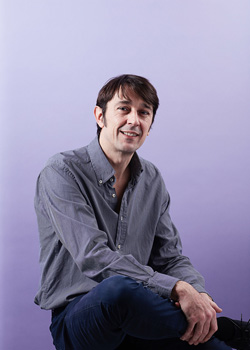
© Romin Favre
After 10 years of classical piano, Renaud Barbier studies at the Centre Musical Créatif of Nancy, where he graduated in 1991. He also integrates Boston's Berklee College of Music.
He scored more than fifty films and telefilms, series, documentaries and commercials. He signs the scores of films such as Le tueur de Montmartre by Borislav Sajtinac, Mejor es que Gabriela no se muera, winner of the Best First Film at Cinequest International Festival of San Jose. His brother Eric Barbier entrusts him with the music of several of his films, such as Le Serpent (with Yvan Attal and Clovis Cornillac) and La promesse de L'aube (with Pierre Niney and Charlotte Gainsbourg). More recently, he scored the docufiction Que le luxe soit ! by Stéphane Bégoin, and Petit Pays (adapted from Gaël Faye's novel, 2020) directed by Eric Barbier.
Renaud Barbier also received several awards for his work (George Delerue Award, Berklee Composition Award, Fondation Marcel Bleustein-Blanchet Award, among others).
COMPOSERS :
Yasmine Meddour
Hassan Ali
Clément Boulier
Sarah Triquet
Samuel Marot-Saferis
Erella Atlan
Antonin Mège
Clémentine CharuelWATCH THE CONCERT HERE
-
2019
As part of the 20th Festival International du Film d'Aubagne from march 13th to 23rd 2019
The Festival International du Film d’Aubagne organizes with the support of the SACEM a masterclass of musical composition for picture.
This workshop takes place March 13rd to the 23rd and intended 8/10 young composers/musicians.
Like every year this Master Class is led by a famous composer (Stephen Warbeck, Jérôme Lemonnier, Bruno Coulais, Gilles Alonzo, Marc Marder, Jean-Michel Bernard, Selma Mutal, Charles Papasoff, Pierre Adenot, Cyrille Aufort...).In 2019, Christophe Héral led the Master Class of the 20th Festival International du Film d'Aubagne.
THE MASTER CLASS ACCORDING TO CHRISTOPHE HERAL
"For the 20th anniversary of a festival that brings together so well music and cinema, I will have the laborious and exhilarating task of combining eight different musical journeys and make them sound as one.
If a single musical score can allow the creation of multiple films, all different, but just as great, what about the opposite? And what if we mixed proposals? Another huge novelty in Aubagne: the creation of an interactive musical score performed live while a player faces Canadian zombies; pretence of the apprehension that comes with the constraints of video game musical composition."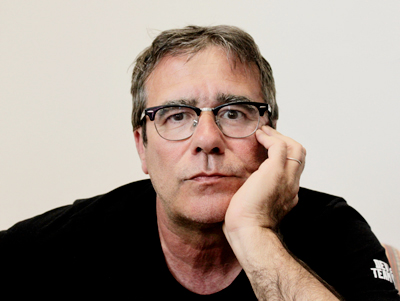
© Maud Saintin
Christophe Héral is a French composer and sound designer for cinema, television and video games. Renowned for his numerous compositions, he has, among others, received the Best original music award at the Festival du cinéma d’animation français de Bruz in 2011 for La douce. The short film La queue de la souris, for which he composed the music, is nominated for a César in 2012 and after working on Jean François Laguionie’s feature film L'Île de Black Mór, he receives the Jury’s special mention at the Festival d’Annecy (2010) for Kérity, la maison des contes. In parallel, he collaborates with Michel Ancel on the music of video games including Beyond Good and Evil, which won many prizes; Rayman Origins; Tintin et le secret de la Licorne; and Rayman Legends (Ubisoft) for which he won the Best original music for a video game award at the Game Paris Awards (2013). He is currently working on two AAA games Beyond Good and Evil 2 (Ubisoft) and Wild (Sony), Laguionie’s next feature le voyage du prince and four short films. Apart from all these awards, Christophe Héral is curious and passioned by all cultures and types of music, and he enjoys collecting musical instruments.
-
2018
The Festival International du Film d’Aubagne organized with the support of the SACEM a masterclass of musical composition for picture.
This workshop intended 9 young composers/musicians.
Like every year this Master Class is led by a famous composer (Jérôme Lemonnier, Bruno Coulais, Gilles Alonzo, Marc Marder, Jean-Michel Bernard, Selma Mutal, Charles Papasoff, Pierre Adenot, Cyrille Aufort...).In 2018, Stephen Warbeck led the Master Class of the 19th Festival International du Film d'Aubagne.
STEPHEN WARBECK
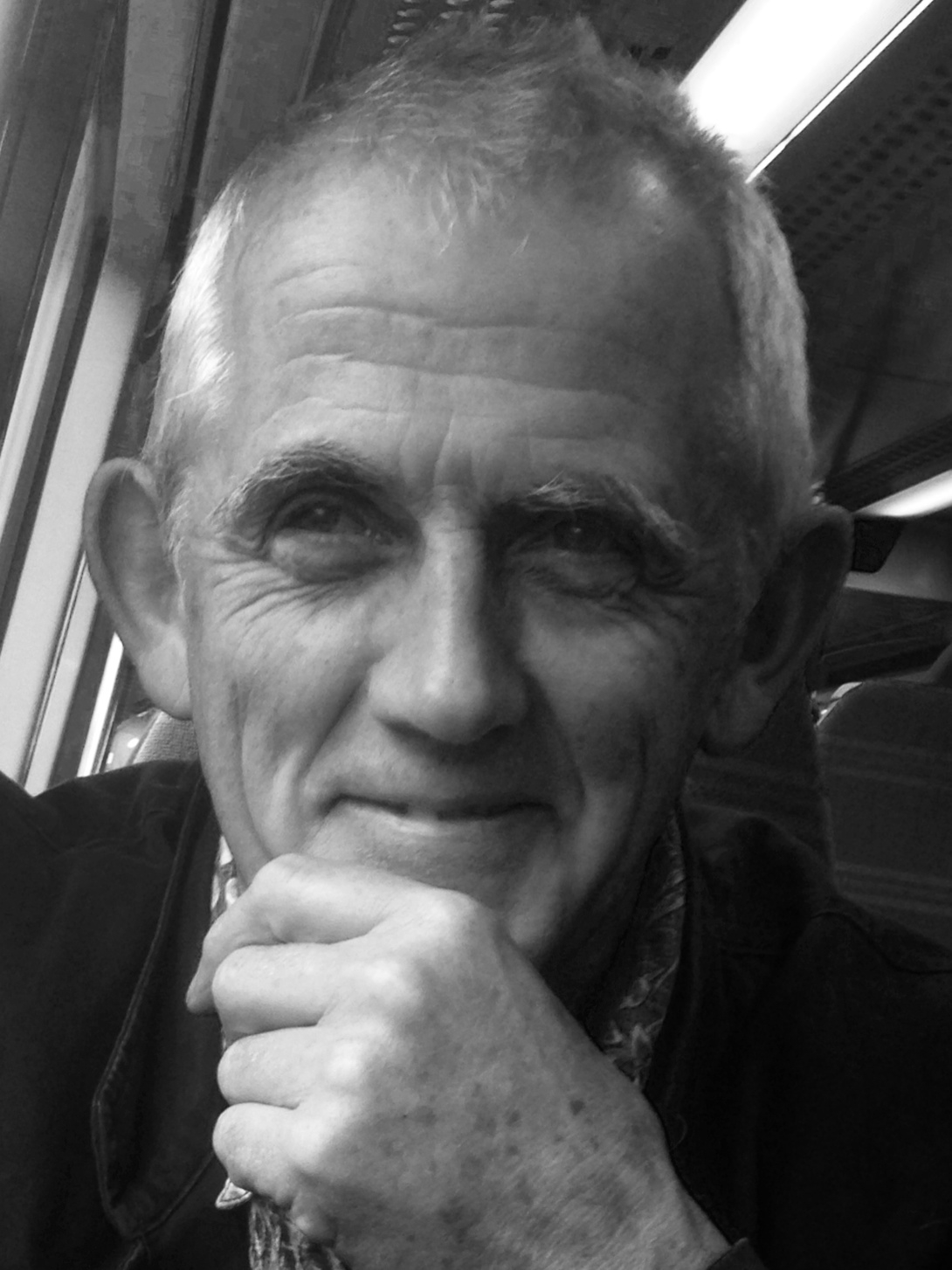
Stephen Warbeck began studying piano and composing of the age of four. By his midteens, he developed an affinity for rock’n’roll as well as for theatre. After eight years of working as a composer and performer for the theatre, Stephen Warbeck began writing music for film and television. He has since built up a considerable filmography.
Film scores include "Mon Roi", "Seve", "Polisse", "Proof", "Mrs Brown", "Two Brothers", "Mystery Men", "Quills", "Billy Elliott", "Captain Corelli’s Mandolin", "Charlotte Gray", "Birthday Girl" and "Shakespeare in Love", for which he won an Academy Award. He has written music for more than 40 television projects, received five BAFTA nominations and in 2013 a BAFTA Award for his work on "Richard Eyre’s Henry IV", "Indian Summers", "Fungus the Bogeyman" and "A Young Doctor’s Notebook".
Stephen’s notable stage productions include: the RSC’s Wolf Hall and Bring Up The Bodies; the Royal Court’s The River and Jerusalem and "The Seagull"; The National Theatre’s "The Red Lion" and many productions for Shakespeare’s Globe Theatre, The Almeida and West End theatres. In addition to composing for film and television, Stephen is a founder member of the anarchic pub band The hKippers for whom he composes and performs. He has his own ensemble who perform selections of his film music. Stephen has written several concert pieces and the ballet "Peter Pan".
THE INVOLVED COMPOSERS
- Henrik André : violin
- Diana Buscemi : piano
- Jérôme Carayol : accordion
- Guillaume Foisseau : trumpet
- Pierre Golse : flute
- Stéphanie Hamelin Tomala : violin
- Sofiane Kadi : guitar
- Mathieu Parisot : piano
- Louis Viallet : guitar
-
2017
<
The Festival, with the support of the SACEM, organized a Master Class of musical composition for picture. The composer Jerome Lemonnier led the Master Class, intended for 9 young composers. The workshops consists of musical composition exercises on short films objective being to build a complete work for the closing ceremony of the Festival (on March 25th) where the young artists performed a public concert-film directed by Jerome Lemonnier.
THE MASTER CLASS ACCORDING TO JEROME LEMONNIER
There are lots of mysteries evolving around the relation between music and images. It would be impossible to put words on this tangled relationship since it is extremely abstract, but music and images complete each other. Music floats through characters’ lives and through their emotional surges, through colors and movements. Music makes the invisible visible. It is everywhere – in every tiny details – in order to create a bridge between ears and eyes.
What happens when music and images become one? Or when they resist to each other? When they complete each other? The Festival’s Master Class of musical composition, which I’m honored to conduct this year, will be an extraordinary occasion for the young composers and musicians as well as for myself to explore this powerful and intimate relation between music and images. To explore emotions, harmony, intensity… as if it was a cooking show! After composing for ten days straight, it’s with the greatest pleasure that we will share our discoveries with the public over an emotive and memorable cine-concert.JEROME LEMONNIER
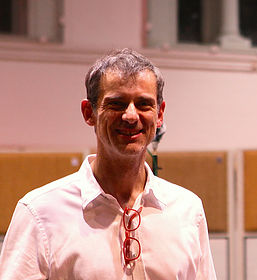
Jérôme Lemonnier started playing piano at the age of 5. He pursued his musical education at the Ecole Normale Normale de Musique, then at the Conservatoire National de Musique in Paris and graduated from Sorbonne after following the Musicologie program in 1984.
Jérôme has composed, produced and edited a number of soundtracks for the arts and entertainment industry, including TV shows, theater, songs and advertisements. After meeting with the film maker and screen writer Denis Dercourt in 2006, Jérôme starts producing music and soundtracks for the film industry. His first production, The Page Tuner, is nominated for Best Original Music Award at the Cesar 2007.
Jérôme also worked with films makers Christophe Ali, Nicolas Bonilauri, Raphaël Nadjari and Emmanuel Courcol.THE PARTICIPATING COMPOSERS
- Benjamin Balcon : guitar et synthesizer
- Hadrien Bonardo : flute
- Louis Chenu : saxophone
- Matthieu Dulong : cello
- Julien Ponsada : trombone
- Nicolas Rezaï-Pyle : percussions and akai EWI
- Felix Römer : piano
- Clovis Schneider : guitar, bass guitar and mandolin
- David Tufano : drum and percussions
-
2016
The Festival, with the support of the SACEM, organized a Master Class of musical composition for picture. The composers Gille Alonzo and Bruno Coulais led the Master Class, intended for 8 young composers. The workshops consisted of musical composition exercises on the film "The Blair Witch Project" objective being to build a complete work for the closing ceremony of the Festival (on March 19th) where the young artists performed a public movie-concert directed by Gilles Alonzo and Bruno Coulais.
THE MASTER CLASS ACCORDING TO GILLES ALONZO ET BRUNO COULAIS
Film music isn't a musical genre and teaching it is a risky exercise since many questions within it are left unanswered !
Why do we require music for a film ? What's the link between music and narration ? When does it start and when does it stop ? What is the ratio of its orchestral weight to the image weight? What is film music's hidden relationship with film lighting? These are but a few questions that composers, novice and experienced alike ask themselves, and we shall attempt to find their answers.
But there is one particular inquiry that has always intrigued us and we would love to expand on this subject during our Master Class : how to instill fear with film music?
It could very well be in a loud and theatrical way or in a tenuous manner, where fear would slowly creep up to the viewer. Music has the amazing ability to make us read between the lines and transfer to film the emotions and feelings of a formidable universe. We inevitably hope that during the final concert, our young composers can evoke in you a shiver of terror. And therefore, our class would have been worthwhile !GILLES ALONZO ET BRUNO COULAIS
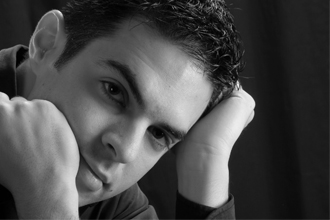
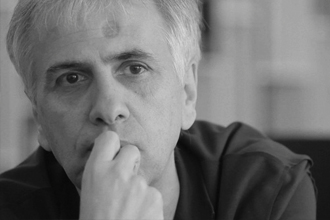
Born in 1979, Gilles Alonzo studied piano at the CRR of Marseille and took Roger Muraro’s class at the CNSMD of Lyon, where he earned his first prize in 2003. Falling in love with composition at an early age, he is only 11 when he writes his first sheet music. The piano naturally becomes his muse, and with it a shift towards orchestral writing takes place. The Music for Image class led by Patrick Millet at the CNSMD of Lyon helps to assert his musical persona and anchor his decision to work in film. In addition to his career as a pianist, Gilles Alonzo works on a music score for the infamous silent film “Le Cabinet du Dr Caligari”, by Robert Wiene, he writes the music for the short films “L’emigrant”, “Le Policeman”, and Charlot fait une cure” by Charles Chaplin. He then transitions into broadcasting, where he creates music for over a dozen documentaries, as well as for the short film “Les Miettes” by Pierre Pinaud, wich took home a Cesar for Best Short Film 2009 and a Critic’s Prize at the 2009 Cannes Film Festival. The composer is also awarded the Prize for Best Original Film Score at the Short Film Festival of Clermont Ferrand in 2008 and the Grand Prize at the Aubagne Film Festival that same year.
Gilles Alonzo’s most recent compositions were soundtracks for hit films. He worked with Nguyen Trong Bhin on "Bertrand Tavenier, cinéaste de toutes les batailles" (2010), Christel Chabert on “Paul Ricard, Portraits (2010”), Clara Vuillermox on “Le sexe de mon Indentité” (2012), as well as the Lorenzo Recio short film “Shadow” (2013), which won the Télérama Prize at the Clermont Ferrand Festival, and the Unifrance Prize at the Cannes Festival (2014).
In 2014, he pens the scores of several documentaries including: “Le dossier albert göring” by Virginie Lhorme, “Le ghetto de venise” by Emmanuela Meschini Giordano, and “Il était une fois, “Dans les quartiers nord de marseille”, by Marie Milesi.
With representation by the Marie Sabbah Agency, he currently holds a teaching position for the Music for Film Class at the CNSMD of Lyon since March 2012.Bruno Coulais studied violin and piano while attending assiduously the cinemas of the Quartier Latin in Paris. Author of a number of pieces of concert music, he has discovered an additional means of expression in film music. Bruno Coulais sees his art as a way of embracing the world, revealing his gifts as a modern alchemist, his own personal style of blending together different cultures. Bruno Coulais has composed over 100 soundtracks including "Microcosmos" (César of the best original score in 1997 1997 ), "le peuple de l’herbe", "Himalaya", "l’enfance d’un chef" by Jacques Perrin and Jacques Cluzaud, "Les rivières pourpres" by Mathieu Kassovitz , "Les Choristes" by Christophe Barratier "Truands" by Frédéric Schoendoerffer, "MR 73" by Olivier Marshal, "Coraline" by Henry Selick, "Brendan et le secret de Kells" by Tomm Moore , "Les Adieux à la reine" by Benoit Jacquot, "Le Chant de la mer" by Anne Fontaine and more recently "Les saisons" by Jacques Perrin and Jacques Cluzaud.
Bruno Coulais’ widely successful hits didn’t sentence him to a chapel, restrict him to a family, or to any defined zone for that matter. 2004 for example, was a schizophrenic year, between the tsunami that was "Les Choristes" by Christophe Barratier, and "Genesis", a brilliant documentary on the meaning of life and its exacting, futuristic film score. Having invested thirty-five years in film composition, Bruno Coulais is adorned with the very unique status of sampling composer, triple agent as well as borders blaster. The evidence is clear in his filmography, where the Marsupilami reaches out to Volker Schlöndorff, André Gide cozies up to Lucky Luke, and Diderot smiles at Isaac Hayes. What a treat it is to listen to his work on a big screen, thru a record or even live in concert! We embark on a journey across forward-thinking dreams, and we are witness to the creative mind that exhibits a serene exterior to a contrasting chaotic interior.THE PARTICIPATING COMPOSERS
- Romain Camiolo : piano
- Alexandre Chaigniau : saxophone
- Arthur Dairaine Andrianaivo : piano et percussions
- Benoit Lefevre : violon
- Valentin Marinelli : violon
- Romain Montiel : guitare
- Thomas Nicol : guitare et basse
- Igor Troppee : accordéon
-
2015
La 12e édition de la Master Class, organisée par le Festival avec le soutien de la SACEM, a été dirigée par le compositeur Marc Marder. Toujours constituée d’exercices de composition musicale sur des essais de films cultes, elle a permis à 11 jeunes compositeurs de réveler leur talent. Le ciné-concert, orchestré par Mac Marder, a mis en exergue le fruit de leur travail de composition mais aussi leur d'interprètes.
LA MASTER CLASS DE MARC MARDER
« Quel drôle de métier que celui d'un compositeur de film. Un métier qui n'existait pas il y a cent ans. A l'aube du cinéma, la musique avait pour fonction de couvrir le bruit du projecteur ou de rassurer le public : Ce n'était pas des fantômes qui défilaient sur l'écran.
Camille Saint-Saens a composé la première vraie partition pour un court-métrage en 1907, L'Assassinat du Duc de Guise. On se demande comment il a fait avec les moyens techniques de l'époque ! A présent, malgré toutes les contraintes du métier - budgets, manque de temps, compromis avec les producteurs, les réalisateurs, les distributeurs, etc. – c'est la seule niche du monde musical dans laquelle on peut terminer sa composition un jour, la faire enregistrer par un orchestre symphonique le lendemain et la sortir pour être entendue par des millions de personnes la semaine suivante ! C'est aussi un monde de liberté compositionnelle totale. Les styles peuvent varier entre le chant Grégorien, la post-Webern, le jazz moderne ou la combinaison des trois. Tout est possible si le résultat fonctionne avec l'image, amène profondeur et émotion musicale, contribue à la magie du cinéma. C'est actuellement l'endroit le plus privilégié et éclectique du monde de l'expérimentation musicale et je suis honoré d'avoir été sollicité pour gérer ce Master Class d'Aubagne dédiée à cette merveilleuse forme d'art.
Cette semaine les compositeurs vont composer, interpréter et diriger en direct leur musique pour les films muets proposés, ce qui est au moins l'équivalent d'acrobaties sur une corde raide et sans filet ! Bonne chance à tous et que le bonheur commence ! »MARC MARDER
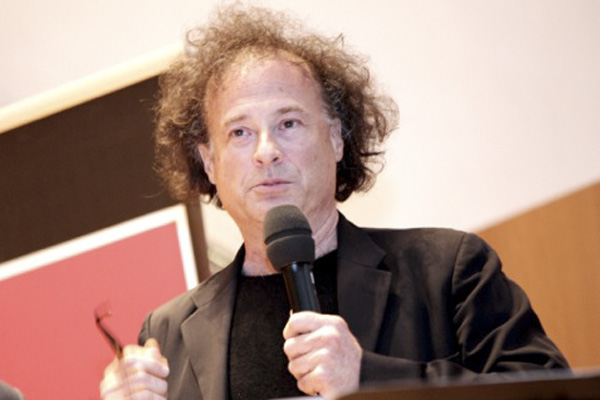
Interprète et créateur multiforme, Marc Marder, originaire de New York, vit à Paris depuis 1978. Après ses études de contrebasse avec Alvin Brehm et théorie avec Robert Levin à l’Université de l’Etat de New York College à Purchase et ses débuts au Festival de Marlboro (Vermont) dirigé par Rudolf Serkin, il devient soliste de l’Ensemble Intercontemporain de 1978 à 1980 sous la direction de Pierre Boulez. Dans les années 80, il est contrebasse solo de l’Orchestre du Festival Mostly Mozart à New York, puis membre de l’Orchestre National de France sous la direction de Leonard Bernstein et Lorin Maazel. De 1984 à 1993, il enseigne la contrebasse au CNSM de Lyon tout en poursuivant une carrière de chambriste. Sa partition pour Sidewalk Stories, film muet de Charles Lane (1989) a gagné le Deutsches Schallplatten Preis comme un des meilleurs de l'année et lui a permis de poursuivre la collaboration avec le cinéma, True Identity pour les Studios Disney à Los Angeles. Marc Marder a composé la musique des 19 films de Rithy Panh- documentaires et fiction – et a eu l'honneur de l'accompagner au Festival de Cannes ou six de ces films se trouvaient dans la Sélection Officielle. L'Image Manquante, le plus récent, a remporté le Prix d'Un Certain Regard, était nommé aux Oscars dans la catégorie des Films en Langues Etrangères et vient de remporter le Prix d'Italia (2014). Pour ce même film il vient de gagner le Prix France Musique Sacem de la musique de film en 2014. Il a composé plus de 75 bandes sons pour le cinéma et la télévision, des musiques de scènes et des pièces de concert. Dessinateur à ses heures il a publié un ouvrage en lithographie, While You Were Out, maintenant dans les collections permanentes du Musée d'Art Moderne (MOMA) de New York et la Bibliothèque de Dresde.
LES COMPOSITEURS PARTICIPANTS
- Léonard Desarthes : guitare, clavier, voix
- Olivier Rabet : violon
- Valentin Simonelli : piano, orgue, violon, clavecin
- Anne De Boysson : piano, flûte
- Cyril Peron : guitare, basse, clavier
- Guillaume St-Laurent : piano
- Julien Bellanger : cornet à pistons, guitare, basse
- Deborah Bombard-Golicki : violoncelle, guitare, basse, voix
- Franziska Henke : guitare
- Vera Nikitine : piano, orgue
- Thomas Chabalier : piano, vibraphone, percussions
- Hugo Sallez : guitare
-
2014
The Festival, with the support of the SACEM, organized for the eleventh consécutive year a Master Class of musical composition for Picture. The composer Jean-Michel Bernard led the Master Class from March 12th to 22th, intended for 10 young composers. The workshops consisted of musical composition exercises on extracts from cult movies. The objective being to build a complete work for the closing ceremony of the Festival (on March 22th) where the young artists performed a public movie-concert directed by Jean-Michel Bernard which invites musician’s Jazz for Dogs to join.
TTHE MASTER CLASS ACCORDING TO JEAN-MICHEL BERNARD
2014's theme in aubagne is that of change. I imagined it as such for our Master class, a particularly special blend this year. As a first in FIFA's history, the candidates of Master class will find themselves going through the process as professional film composers across the world do, penning scores for a group of high level musicians. These scores will be finalized in studio recordings, with the same excitment as if the music was composed by John Williams himself!
The film snippets which the candidates will work on are seen by many as key pieces of cinematographic heritage. They were carefully chosen that audiences can get a new and creative musical perspective on familiar classics. We are thrilled to be able to showcase the talent and skill demonstrated by these foward-thinking emerging film composers in the Master class. And we hope the audience grasps the importance of film socre composition as an art, and one that demands just as much technical cpability as an artistic one.
For the youg composers, this training hopes to set them up for success. As a film scoring in the professionnal world is quite competitive, one cannot only rely on talent to get ahead. The importance of selling oneself through networking and presenting their best foot forward at every contact is just as crucial and these skills aren't taught in school.
The International Film Festival of Aubagne being the most important in France today for film music, is fully committed to giving to those future talents willing to seize it, the opportunity to sharpen those business skills.
I'm excited to be taking part of this festival for a second straight year, and being able to offer my experience and advice to these young and talented musicians.JEAN-MICHEL BERNARD
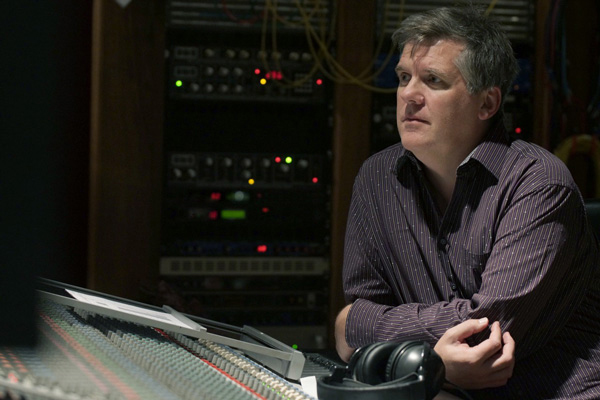
Jean-Michel Bernard’s passion for piano started at the age of 2. By the age of 14, he had already been awarded prizes by the Conservatory and he earned the Licence de concert from l’École Normale de Musique de Paris in 1981. His young adult life starts with a noteworthy accomplishment, as at the age of 19 he records with the London Philharmonic Orchestra all the while pursuing his love for jazz. Bernard starts composing at the age of 16. He starts writing music for cartoons, and then follows with France Inter from 1987 to 1991, where he takes on the role of musical director of “L’Oreille en coin”. He pens the music of Claude Villier shows for the next ten years, adding his signature to “Marchand d’histoires”, “Les routes du rêve”, “Je vous écris”, etc.
Jean-Michel Bernard worked closely with accomplished musicians and composers such as Lalo Schifrin, Ennio Morricone and Zubin Mehta. In 2000, he went on a world tour with Ray Charles and his quartet for the last 3 years of the late great Charles’ life promoting the album “Ray Charles live in Melbourne 2003”. All the while, Bernard didn’t miss a beat when it came to his continued responsibilities as conductor, composer and arranger. With his partnership with director Michel Gondry, Bernard’s film scoring career took off.
In 2000, Bernard writes the songs for the movie “Human Nature” and in 2006 composes the score for “La Science des rêves” directed by Michel Gondry, which was part of the Sundance and Berlin Festival selections. Bernard not only wrote the soundtrack for it, but he also played a music-loving cop in the movie. The following year, Bernard was nominated at the World Soundtrack Awards, and that same year, the composer took home the prize of France Musique/UCMF at the Cannes Film Festival. This international success was followed by yet another Gondry-Bernard collaboration on the film “Soyez sympas, rembobinez”, "Ca$h" directed by Éric Besnard and "L’Emmerdeur" directed by Francis Veber. From there, in 2010, Fanny Ardent gave him reign to create the music for her movie “Chimères absentes”. A year later, Anne Giafferi and Bernard worked together on “Qui a envi d’être aimé”. He collaborated with Eric Lavine on “Bienvenue à bord”, with Sophie Lellouche on “Paris Manhattan” starring Woody Allen and with Martin Scorses for “Hugo Cabret”.
He recently penned the original music for Fanny Ardant’s cinematic debut “Cadences obstinées” set for release next January along with “The Love Punch” directed by Joel Hokins slated for theaters in June 2014. In the spring of 2014, the album “Jazz For Dogs” a collaborative effort between Jean-Michel Bernard, Kimiko Ono and composer Charles Papasoff is expected to release.THE COMPOSERS INVOLVED
- Benjamin Ribolet : violin, piano guitar, electric bass, percussions
- Eloi Ragot : piano, guitar, trumpet, ukulele, glockenspiel, piano-jouet
- Nicolas Seguy : piano, guitar, bass, melodica, keyboard
- Antoine Duchene : cello
- Valentin Lafort : guitar, banjo, bass
- Sabrina Duval : piano
- Ghislain Leclant : piano
- François Liétout : piano
- Benjamin Rando : piano
- Quentin Fouquet : drum, guitar, percussions
-
2013
As every year, the Festival, with the support of the SACEM, organized a Master Class of musical composition for picture. From March 13th to 23rd, Selma Mutal passed down her knowledge to 8 young composers, and gave them musical composition excercises on short films such as "Mighty like a Moose" by Léo Mc Carey, "Tulips shall grow" by Georges Pal, "Suspense" by Lois Weber and "Le pêcheur de perles" by Ferdinand Zecca. These exercises were performed as a public cine-concert during the closing ceremony of the Festival directed by Selma Mutal.
THE MASTER CLASS ACCORDING TO SELMA MUTAL
"Each composer brings his own perspective and awareness towards the art of film. The idea of composing in a group setting where different musical attitudes emerge can present an exciting challenge as well as a rare opportunity for composers of the International Film Festival of Aubagne. This will allow composers to experience first-hand one of the harshest realities of the profession: musical composition deadlines. I hope that this experience is not only one where creativity is fostered, but also one of motivation and discovery for the musicians through dialogue and mutual listening. I am honored to be a part of this soulful project."
SELMA MUTAL
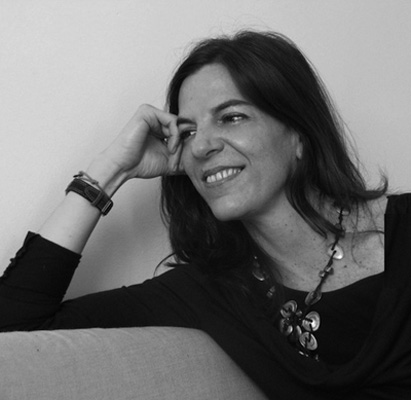 As a classically trained pianist, Selma Mutal studied musical composition in the Netherlands at the Conservatory of Amsterdam as well as in Paris at l’École Normale de Musique. Selma’s career started in composing for television and theater. She added film composition to her resumé as of 2003. Notably, she collaborated with director Claudia Llosa, whose last movie "La Teta Asustada" (The milk of sorrow), won the Golden Bear at the Berlin Film Festival in 2009 and was nominated for an Oscar in 2010 for Best Foreign Film.In 2010, Selma Mutal composed the original soundtrack for the feature film "Contracorriente" (Undertow) by Javier Fuentes León. The film earned multiple international prizes, one of which was the People’s Choice for the Best Film at Sundance."Contracorriente’s" original score was awarded the Best Original Music at the International Film Festival of Annonay. The Fuentes León collaboration will be extended to a second feature film titled "The Vanished Elephant". In 2012, Selma Mutal worked with director Tod Lending ("Legacy") on the documentary "Burden of Silence".Currently, Selma is creating the score for director Violeta Ayala’s ("Stolen") new movie "Cocaine Prison" a French co-production coming to theaters in 2014.
As a classically trained pianist, Selma Mutal studied musical composition in the Netherlands at the Conservatory of Amsterdam as well as in Paris at l’École Normale de Musique. Selma’s career started in composing for television and theater. She added film composition to her resumé as of 2003. Notably, she collaborated with director Claudia Llosa, whose last movie "La Teta Asustada" (The milk of sorrow), won the Golden Bear at the Berlin Film Festival in 2009 and was nominated for an Oscar in 2010 for Best Foreign Film.In 2010, Selma Mutal composed the original soundtrack for the feature film "Contracorriente" (Undertow) by Javier Fuentes León. The film earned multiple international prizes, one of which was the People’s Choice for the Best Film at Sundance."Contracorriente’s" original score was awarded the Best Original Music at the International Film Festival of Annonay. The Fuentes León collaboration will be extended to a second feature film titled "The Vanished Elephant". In 2012, Selma Mutal worked with director Tod Lending ("Legacy") on the documentary "Burden of Silence".Currently, Selma is creating the score for director Violeta Ayala’s ("Stolen") new movie "Cocaine Prison" a French co-production coming to theaters in 2014.THE COMPOSERS INVOLVED
- Anne-Sophie Versnaeyen, Violon, guitare, piano
- Anthony Scotto, Flûtes, clarinette, trompette, trombone, piano
- Alexandre Olivier, Piano, clavier
- Erwann Chandon, Guitare, glockenspiel
- Alexis Maingaud, Piano
- Thibault Cohade, Guitare
- Benjamin Martinez, Piano
- Marian Gabriel Weber, Violon
-
2012
Take ten young composers with ten different ways of conceiving music, and give them ten intensive days to create. What do you get? An amazing cine-concert during the closing night of the Festival! Its popularity with the festival-goers makes this event an indispensable one! In 2012, it was led by the composer, musician and orchestrator Pierre Adenot.
This yearly tradition continued with a selection of shorts by great silent film directors as Buster Keaton and Georges Méliès.THE MASTER CLASS ACCORDING TO PIERRE ADENOT
Until it’s time for the recording, the composer’s activity is very often lonely. This is why the master class of composition, within the Festival d’Aubagne framework, offers a unique perspective: Il allows for young musicians to get out of their comfort zones by exchanging their ideas and responding as a group in order to learn from another. Take the instrumentalist activity for example, where listening to others is just as important and as formative as personal work. To my knowledge, composition training in a group setting is very rare, and I am delighted to take part in this activity.
PIERRE ADENOT
Born in November 1965, Pierre Adenot was classically trained at the Lyon Conservatory and won first prize for oboe as well as for counterpoint. He composed his first film score, La Reussite de Brice Mallier at the age of 15.
Combining a strong classical background from the RNC of Lyon with a comprehensive Jazz training with Clare Fischer, Pierre Adenot quickly emerges as an arranger and an orchestrator with an array of rich and subtle musical styles: Currently, he is collaborating with Calogero or Charles Aznavour.
Alongside his arrangement projects, he distinguishes himself in his composition of original music for film, television and advertising: "La Vérité ou presque" by Sam Karmann, "Paris je t'aime" (multiple directors, including Alexander Payne, Richard Lagravenese, Wes Craven), and his more recent work "Les Émotifs anonymes" by Jean-Pierre Améris. Pierre Adenot won, amongst others, the SACEM Grand Prize for best score for "Les Aveux de l'innocent" by Jean-Pierre AMÉRIS.LES COMPOSITEURS PARTICIPANTS
- Jean-Marie Lemarchand, classicguitar
- Anne-Laure Carette, chromatic accordion
- Yves Ruhlmann, piano, violin et viola
- Solange Baron, chromatic accordion
- Nelson Malléus, clarinet Sib
- Julie Roué, piano
- Romain Trouillet, guitar et piano
- Sydney Amsellem, piano
- Stéphane Tsapis, piano
- Gautier Galard, piano, percussions
-
2011
In 2011, the Festival, with the support of SACEM, organized for the eighth consecutive year a Master Class of musical composition for picture. The composer Charles Papasoff led the Master Class March from March 16th to 26th. Intended for 10 young composers, the workshop consisted of musical composition exercises on short movies as "His Wooden Wedding" by Leo McCarey and "Doggone Tired" by Tex Avery. The objective was to build a complete work for the closing ceremony of the Festival (on March 26th) where the young artists performed a public cine-concert directed by Charles Papasoff.
THE ADVENTURE OF THE DIGITAL ERA IS ONLY JUST BEGINNING...
The sound track composer metamorphoses into a hybrid being, as keen on timbre as on melody, harmony and rhythm. He shares space, in X.1, with a sound editor who becomes his best accomplice. His precious articulate composer heritage rubs elbows with a virtual approach that reinvents itself with every moment. His weapons are multiple; from sheet music to computer, from improvisation to composition. He understands the process of creation in all its stages and anticipates the occupational hazards in order to deliver a sound track that lives up to the aspirations of the film and its director. Pretty program... beautiful life. We invite you to share a workshop where reality is in fiction. Or is it the other way around?CHARLES PAPASOFF
Multitalented artist, Charles Papasoff is a musician, composer, arranger, director and producer.
Known in jazz circles as a baritone saxophonist but comfortable with several instruments and in a good number of musical styles, Charles consecrates a good deal of time to composing and recording. These last few years, as well as composing for the Papasoff Qtet, he has worked for the cinema, signing music for films such as, « Le fugitif ou les vérités d’Hassan » by Jean-Daniel Lafond (2006) and « La lune viendra d’elle-même » (2005) by Marie Jan Seille.
In contemporary dance, Papasoff has composed amongst others, the music for « Plus seule qu’en solo » (2004) and « Ulysses, nous et les sirènes » (2010), for the Système D company of choreograph Dominique Porte, and « L’homme filigrane » (2000) for the French choreograph Myriam Naisy of the CMN Company in Toulouse.
As a director, he has collaborated with, amongst others, Dawn Tyler Watson and Paul Deslauriers for “ ...en duo” (Disc of the year Lys Blues, 2008) and Coral Egan for “Magnify” (2007) and “My Favorite Distraction” (director of the year ADISQ, 2004).
As an arranger we also find him on “Nocturno” by Bïa (2008) and the eponymus cd of by Geneviève Toupin (2009).
As a saxophonist, he has participated in numerous recording sessions, among which very recently, with Kevin Parent and Guillame Arsenault.
On the production side, several achievements are tributary to his work on the shows of Coral Egan at the Espace Dell Arte (2007), the Dawn Tayler Watson and Paul Deslauriers cd "...en duo" and that of his ensemble the Papasoff Qtet, "Papasoff Live"(2010).
And finally, the actor Papasoff, has played in several projects these last few years, amongst which recently for television "Tout sur moi" and "Tout la vérité" (2010) and for the cinema with "Next Floor" by Denys Villeneuve (Best short film, Cannes 2008) and "In Cold Love" (2009) by Franck Blaess, in which he has the leading part .THE COMPOSERS INVOLVED
- Pierre Demange, guitarist, drummer
- Gaëlle Perez, flutist, pianist, bassist
- Valentin Hadjadj, guitarist
- Sylvain Morizet, pianist
- Samuel Leloup, violonist
- Maxime Barthelemy, bassist, laptop, trompeter
- Kumi Iwase, saxophonist, clarinetist
- Erwan Le Guen, cellist
- Jérôme Lifszyc, pianist, guitarist
- Amaury Chaboty, pianist, guitarist, drummer
-
2010
COMPOSING TO FEEL
« I’m always amazed by realize the impact that some film music can have on the spectator and the impact which some of these pieces produce on the collective unthinking. I remember when being schoolchild, during our breaks we mimed the murder scene of "Psycho", while trying to sing the music of Bernard Herrmann (orchestrated with glissandi of ropes). The quality of this musical metaphor had a strong impact the history of music in the cinema for ever. To such an extent that even today, to stigmatize stress, suspense, tension, we use " Hermannien " style as reference for many composers. This is the idea I have of the role of music in cinema; this faculty has to influence our reception of image while acting on emotions of the spectator. It is this dimension that I will share with the young composers in this workshop, through my experience of composer and arranger.
The relationship with the film director,the means the musician has to accomplish his music, the orchestration, the musical language, the music’s role in a film; all these elements are so many factors the composer must try to control the best he can, they constitute the frame set up by his work of composition.
To prepare the cine-concert of the closing night, we shall work on the elaboration of key elements allowing to construct the musical form which will go with the film. We shall blend at the same time, writing, orchestration and improvisation as well, on the musical elements offered by the young composers participating to the workshop. »– Cyrille Aufort
CYRILLE AUFORT
Cyrille Aufort starts his career as an arranger, working for several artists of the French song (Michel Sardou, Michel Fugain, Serge lama, Charles Aznavour, Bernard Lavilliers).
Orchestrator well known, he worked with Alexandre Desplat, Yvan Cassar and Gabriel Yared, and many others. Cyrille Aufort composed his first music of feature film for the film « 9A », by Reza Rezaï. Since that, he notably signed the original music of " Hell " (Bruno Chiche), " Splice " (Vincenzo Natali) and of « L 'empire du milieu du sud » (Jacques Perrin and Eric Deroo).LES COMPOSITEURS PARTICIPANTS
- Damien Deshayes, flautist
- Gaston Urioste, oboist
- Nigji Sanges, violonist
- Alexandre Desenfant, saxophonist
- Jeff Suzda, saxophonist et clarinetist
- Bruno Abel, pianist
- Rémi Boubal, pianist
- Fabien Cali, guitarist

